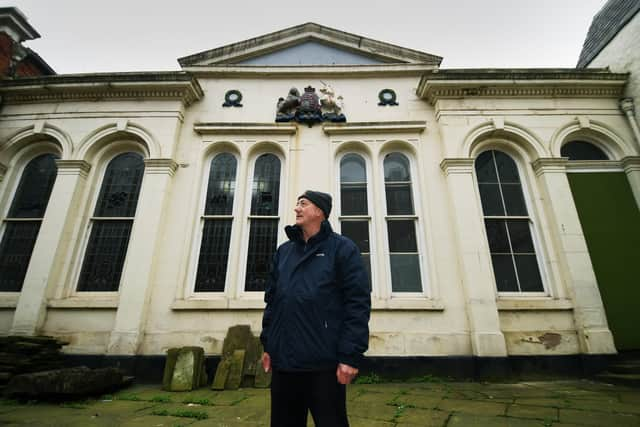Post Office: The fascinating history of the Post Office in Hull
However the service has a long and fascinating history in Hull - one that has been delved into by retired city postie Dave Bean.
Hull’s first postie was a letter carrier by the name of Dickie Sagg who in the late 1600s used to collect and send letters on the London mail coach. By 1737, a merchant was providing postal services from a large house in the Old Town where business was conducted in the “Room”.
Advertisement
Hide AdAdvertisement
Hide AdDave said: "To become a “receiver” required hard cash as the Postmaster General sold such positions for a handsome price.


"It was mainly a service for the mercantile and upper class users, until 1840 when Sir Rowland Hill, the great reformer, introduced “Penny Black” and shortly after “Penny Red” postage stamps. This opened up postal services to millions of ordinary working class folks."
Until 1969 the General Post Office was a government department and workers had to sign the Official Secrets Act. It was replaced by a public corporation, ending quaint roles like that of Postmaster General.
Some will remember the Labour MP and Postmaster General John Stonehouse, a suspected spy who vanished overnight, taking up the role before it was abolished.
Advertisement
Hide AdAdvertisement
Hide AdIn the early 20th century, conditions were tough and many workers experienced ill health. One of two buildings built by the GPO was on Lowgate, now the Custom House restaurant. It housed the telegraph, used from the 1840s to send electric signals across wires.
Dave said: "There were multitudinous problems with poor lighting, cramped and dusty conditions, and newly invented telegraph machines with its non-stop tap, tap, tap, constantly stretched nerve endings to the limit, damaged eyes and caused bronchial problems. Far too many workers died before reaching retirement age."
Ledger entries around the two World Wars show many were called up, with a large proportion killed or disabled. Those who came back were no longer able to perform and retirement through ill health became normal practice.
The job still had its perks – security, regular pay, a decent pension – and a uniform with cap and cavalry twill trousers.
Advertisement
Hide AdAdvertisement
Hide AdOn April 1 2012, Post Office Ltd became independent of Royal Mail Group, which now provides UK postal services.
Dave says being a postie is a job in sharp decline: "It's massively different now, there isn't the camaraderie, they are just rushing around like ants. We are no different from any other carrier.
"They are short of staff and they've had two CEOs in a short space of time. The Government won't allow them to go to five days (from six) which is a good thing. In my opinion the Royal Mail will eventually go - it's already gone as it's private, it's not owned by us any more."
His research will be available at Beverley Archives and the city’s Carnegie Centre later this year.
Comment Guidelines
National World encourages reader discussion on our stories. User feedback, insights and back-and-forth exchanges add a rich layer of context to reporting. Please review our Community Guidelines before commenting.
